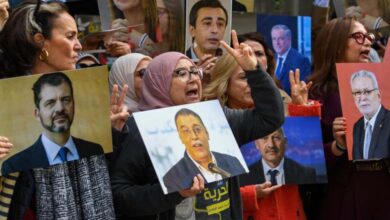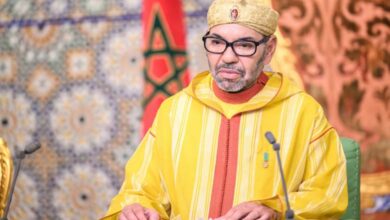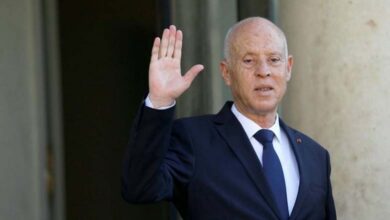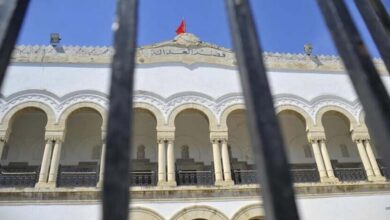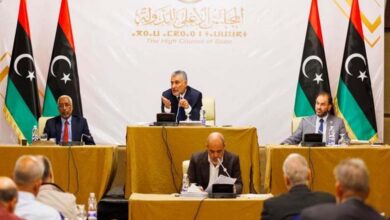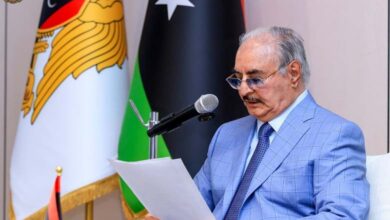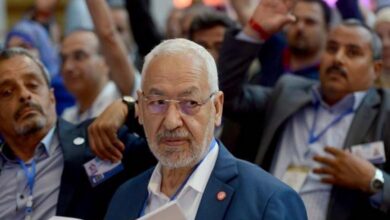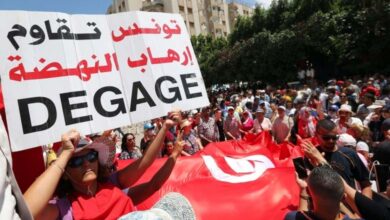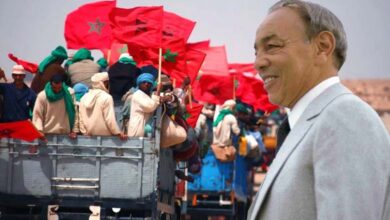Al-Ghariani: Rome meeting discussed resettling Gaza displaced in Libya
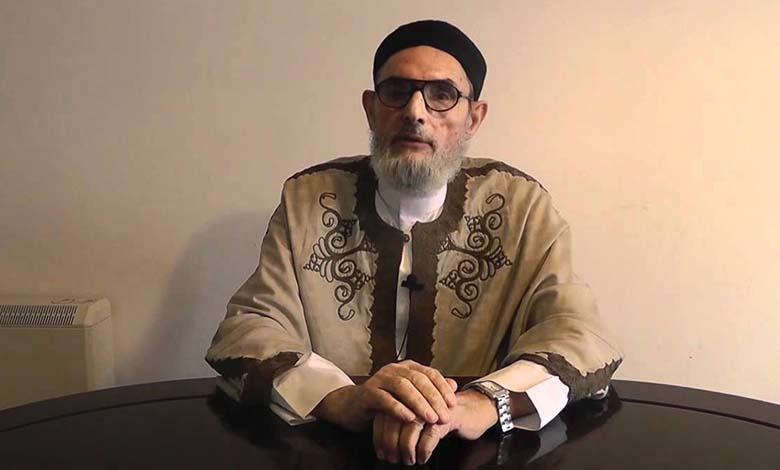
Libya’s Grand Mufti, Sheikh al-Sadeq al-Ghariani, issued a stark warning regarding what he described as “dangerous information” reaching him about a meeting held in Rome. According to him, the gathering brought together Ibrahim al-Dbeibah, National Security Advisor to the Government of National Unity, Saddam Haftar, son of Field Marshal Khalifa Haftar, along with an American official believed to be President Biden’s adviser, Massad Boulos. While officially presented as a dialogue on Libya’s “stability,” al-Ghariani claimed that the talks also included an American request for Libya to host Palestinians displaced from Gaza.
-
The Muslim Brotherhood in Libya: Al-Ghariani Expands Influence over Education under the Guise of Religious Legitimacy
-
“The Mufti of the Muslim Brotherhood”: Al-Ghariani leads an incitement campaign to prevent the end of the Dbeibeh government
Speaking on al-Tanasuh TV, which is affiliated with Libya’s Dar al-Ifta, al-Ghariani declared that if these reports were true, they would represent a disgrace for the Libyan people. He called on the Government of National Unity to clearly and publicly reject such a plan without delay.
Known for his ties to Islamist circles and his alignment with the Muslim Brotherhood’s positions in Libya, al-Ghariani’s statements come amid a volatile political landscape. Analysts suggest his intervention may be aimed at disrupting potential reconciliation efforts between eastern and western factions, particularly as discreet, internationally backed talks between Abdelhamid al-Dbeibah and Khalifa Haftar have been rumored.
-
Al-Ghariani: Serving the Muslim Brotherhood in Exchange for Moral Support in Libya
-
Sadiq Al-Ghariani fatwas for serving terrorism.. Details
Islamist factions in Tripoli and western Libya have expressed growing concerns that any political compromise could reshape power structures and diminish their dominance. In this context, observers view al-Ghariani’s invocation of the Palestinian issue as a strategy to galvanize public opinion and hinder rapprochement that could weaken the influence of armed groups aligned with Islamist currents.
The mufti stressed that Libya, already burdened with complex internal crises, could not serve as a stage for forced resettlement. He argued that Libya’s national and religious duty is to support Palestinians in their steadfastness on their land, not to facilitate their displacement.
-
Muslim Brotherhood in Libya Banking on Terror Mufti Sadik Al-Ghariani
-
Libyan Brotherhood and al-Ghariani: The war of terrorism protects the Mufti of blood
This controversy comes at a time of worsening humanitarian conditions in Gaza, as international discussions circulate over controversial schemes to relocate Palestinian refugees to neighboring states. Within Libya’s fractured political scene, such claims have fueled skepticism and ignited strong reactions.
So far, neither the Government of National Unity nor the other parties reportedly involved in the Rome meeting have issued any official confirmation or denial, leaving the Libyan public awaiting clarification while speculation continues to grow.


